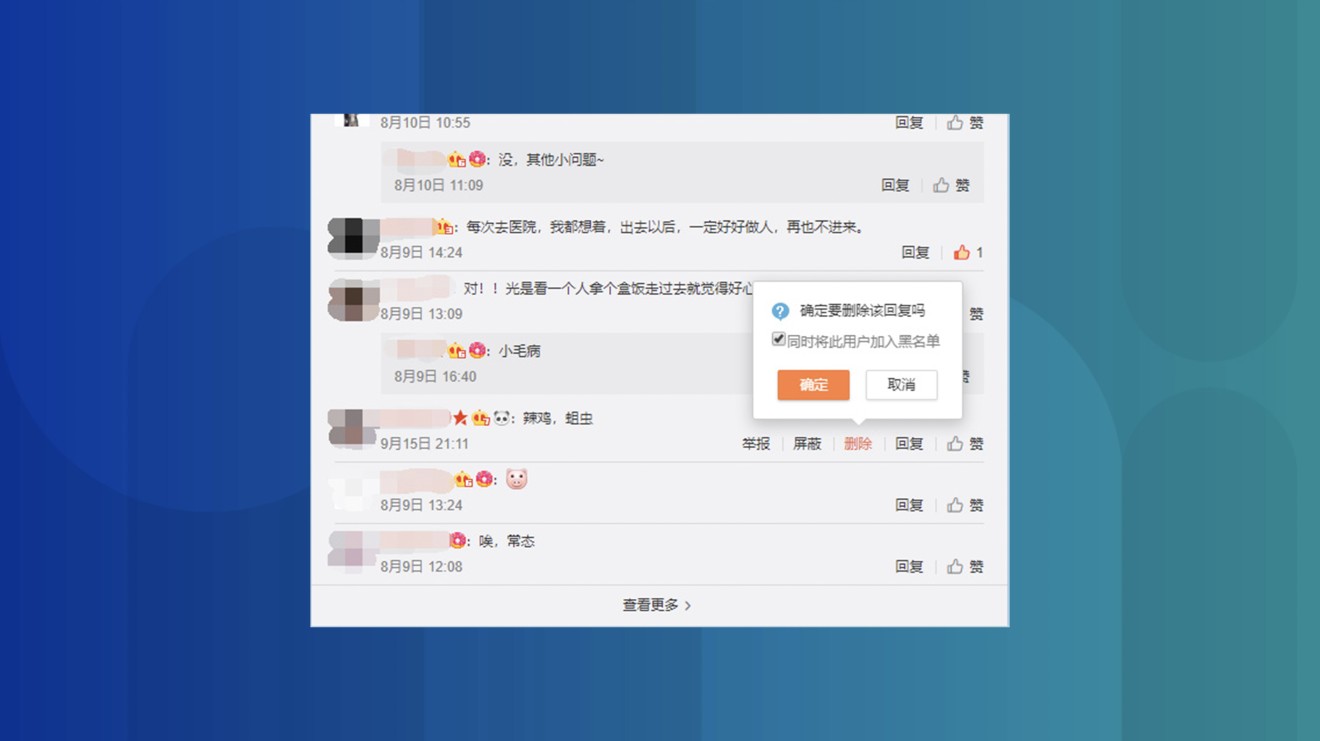
Weibo is now giving popular users the right to censor other users
“Who’s there to protect our rights?”
Trolls are a common headache for all social media platforms. China’s Weibo has decided to let its users handle trolls… by handing an elite few the power to ban other users.
How Weibo became China’s most popular blogging platform
The decision to ban someone is left entirely up to the user -- Weibo doesn’t review the decision, so theoretically, a person could be banned even if it isn’t a personal attack or harassment.
To be clear, banned users can still make posts from their own account -- they just aren’t able to comment on posts from other users (for three days). It’s also possible for banned users to repost someone else’s story and add their own comments, a little like Twitter’s quote function.

Weibo’s announcement was met with a wave of criticism from average users, who are not happy about more rights being given to more popular accounts -- and warn that it will be abused.
“Users can stop others from commenting under their own posts, but what’s their right to stop people from commenting in other places?” another user asks.
Before today, blacklisted accounts would only be forbidden from interacting with the user who blacklisted them, and would only be forbidden from leaving comments on posts by other people if they’re blacklisted by at least three people, according to Weibo.
“The trolls are not your real fans,” Weibo says in the post, trying to assure bloggers that it won’t discourage other people from posting comments. “Blacklisting them and preventing them from commenting helps create a better interaction environment, and it will be supported by your fans.”
Weibo says it may open up the function to all users in the future, based on feedback.
One of China’s biggest social networks reverses decision to ban LGBT content
For more insights into China tech, sign up for our tech newsletters, subscribe to our Inside China Tech podcast, and download the comprehensive 2019 China Internet Report. Also roam China Tech City, an award-winning interactive digital map at our sister site Abacus.
For more insights into China tech, sign up for our tech newsletters, subscribe to our Inside China Tech podcast, and download the comprehensive 2019 China Internet Report. Also roam China Tech City, an award-winning interactive digital map at our sister site Abacus.

